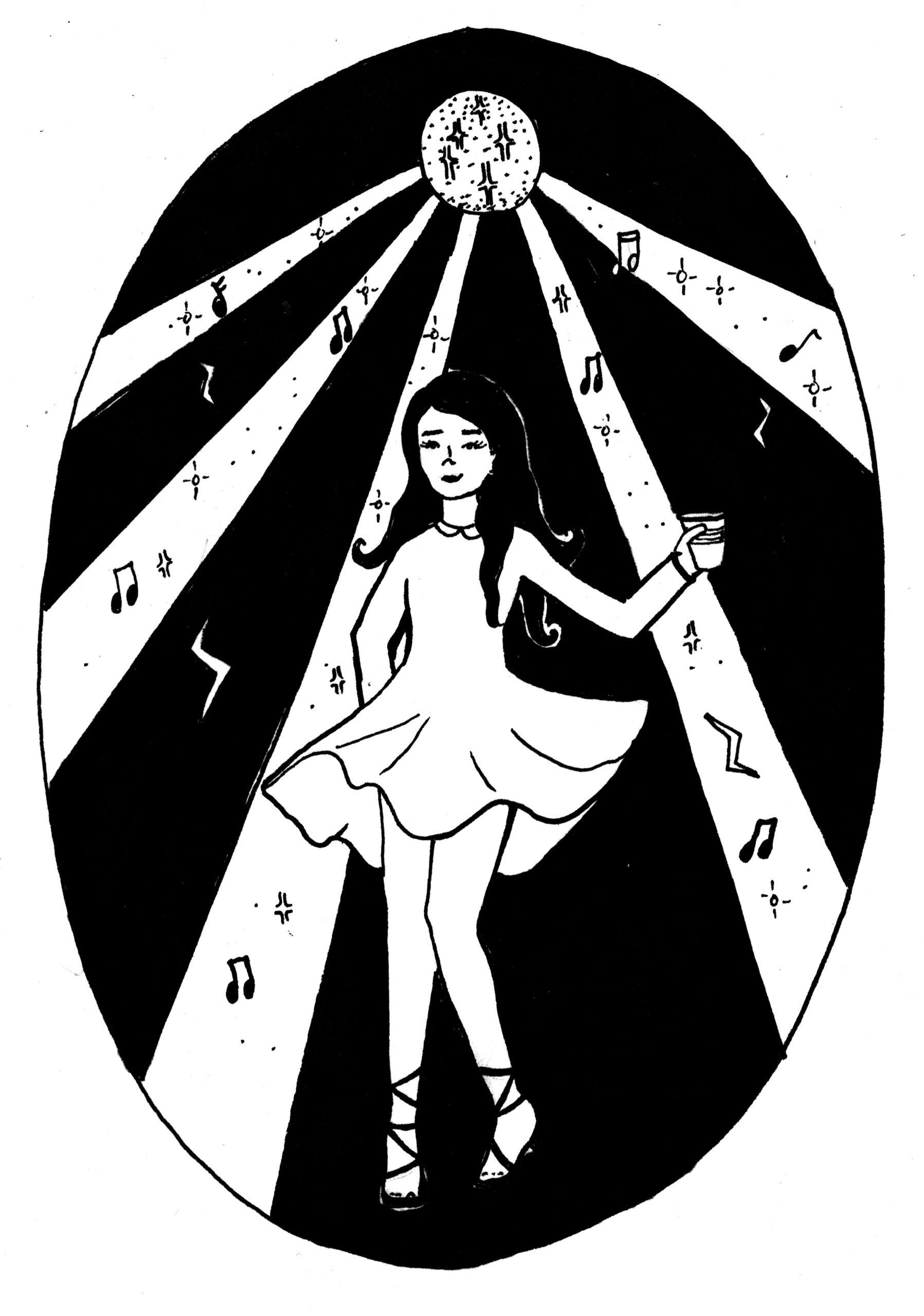Hate to love it: a self evaluation of pop culture taste
March 3, 2017
 This
piece represents the opinion of the author
.
This
piece represents the opinion of the author
.
I heard “Cake,” by Flo Rida featuring 99 Percent for the first time at a pregame last weekend (am I behind the times?) and discovered yet another reason to hate myself. There are many reasons to hate oneself at a pregame. Simply attending the pregame—calling it a pregame—is enough. As an adult, I can accurately—and legally—attest to the problems alcohol introduces (bloating, crying—I have a lucky boyfriend)! According to Lars, a Danish WordPress commenter, “alcohol is one of the oldest companions of man—and the grandest.” Lars says his pregames begin at 2 p.m. He is a show-off.
The real reason “Cake” struck such a chord of self-loathing in me was because I liked it. A friend introduced the selection with a smile because she knew I would like it too.
“You have to give it a chance,” she said.
We listened as chipmunk voices repeated the word “cake.” By the chorus, I had already begun to dance—I was at a pregame after all.
“I hate how much I like it,” I said.
Now, I’m an intelligent person; I use words like “intertextuality” somewhat correctly. But this scene is all too common. I’m often shocked by my boneheaded pop culture interests. I like crappy songs. I like trashy TV I’ve managed to binge watch—and enjoy—“Dance Moms,” “America’s Next Top Model,” “Project Runway,” “The Jersey Shore” and “The Biggest Loser.” I also like Ke$ha and Sean Paul.
Why do I respond to this crap? Why do I enjoy watching a pregnant Snookie at the shore house? Why do my endorphins go to 11 when I hear “TiK ToK?”
For answers, I turned first to Google, which then sent me to Quora (ugh). Of course, the site managed to offend me instantly, asking “Why do intelligent women watch mind-bogglingly bad TV shows?” The first anonymous commenter cleared the air, claiming, “Intelligence or logic is never given much worth in the lives of women, for them these are not necessary attributes required to lead a happy life.”
I was incredibly grateful Anonymous was able to shed light on my female tendencies, like a secret fairy godmother. Unfortunately, I remained unconvinced. I had known my very intelligent—and very male—father to dabble in both “The Bachelor” and “Dance Moms”—sometimes voluntarily. These supposed “guilty pleasures” could not be pegged only on irrational women. (Periods make us crazy!)
After doing more serious research, I found that most studies cited schaudenfreude, escapism or vicarious embarrassment. We love to watch people spend money! We love to watch people suffer! Wired argued reality TV turned viewers into “virtual anthropologists,” conducting “long, observational ‘ethnographic’ interviews.” Researchers at the University of Bonn claimed reality TV induced empathy, like novels. The “automatic simulation and understanding of the characters’ social suffering” may also be why scripted “reality shows,” such as “The Office,” are so appealing.
About my horrible music taste, the jury was undecided. isitnormal.com (yes, it exists) asked “What happened to music and why is it acceptable to fail so badly at it?” Alternative Press attempted to link musical interest with “intelligence” graphically. Beethoven, Radiohead and the Beatles aligned with higher intelligence; Lil Wayne, Nickelback and Justin Timberlake with lower intelligence. Personally, I like “Lollipop” and “Creep” just the same.
Mic cited a theory I enjoyed called “mere exposure effect,” the notion that hearing something enough will make you like it. The emotional centers in our brains are somehow more active when we hear songs we’ve heard before, even if they don’t suit our musical taste. That’s why songs grow on us. The Black Eyed Peas’ “I Gotta Feeling” is a prime example of this phenomenon. Hate, to tolerance, to love. The mere exposure effect also works for relationships. So yes, you are settling.
The consensus? Basically, I’m wonderfully inquisitive and—unlike “The Bachelor’s” Corinne—emotionally intelligent. What can I say? I’m attracted to the pedagogic nature of “the real world.” According to “The Daily Mail,” I might also be narcissistic. All jokes aside, these articles were most likely written by those who, like me, fear their bad taste. Articles justify beliefs. So do studies—especially ones with graphs and three authors. Now that I know my bad taste isn’t severely damaging my brain cells, I am content with my decisions. Enough with this fan elitism. Rock on with your trashy selves, after all, “it’s only human natural” (Kevin, “The Office”). Just mix in a documentary once in a while.


Comments
Before submitting a comment, please review our comment policy. Some key points from the policy: